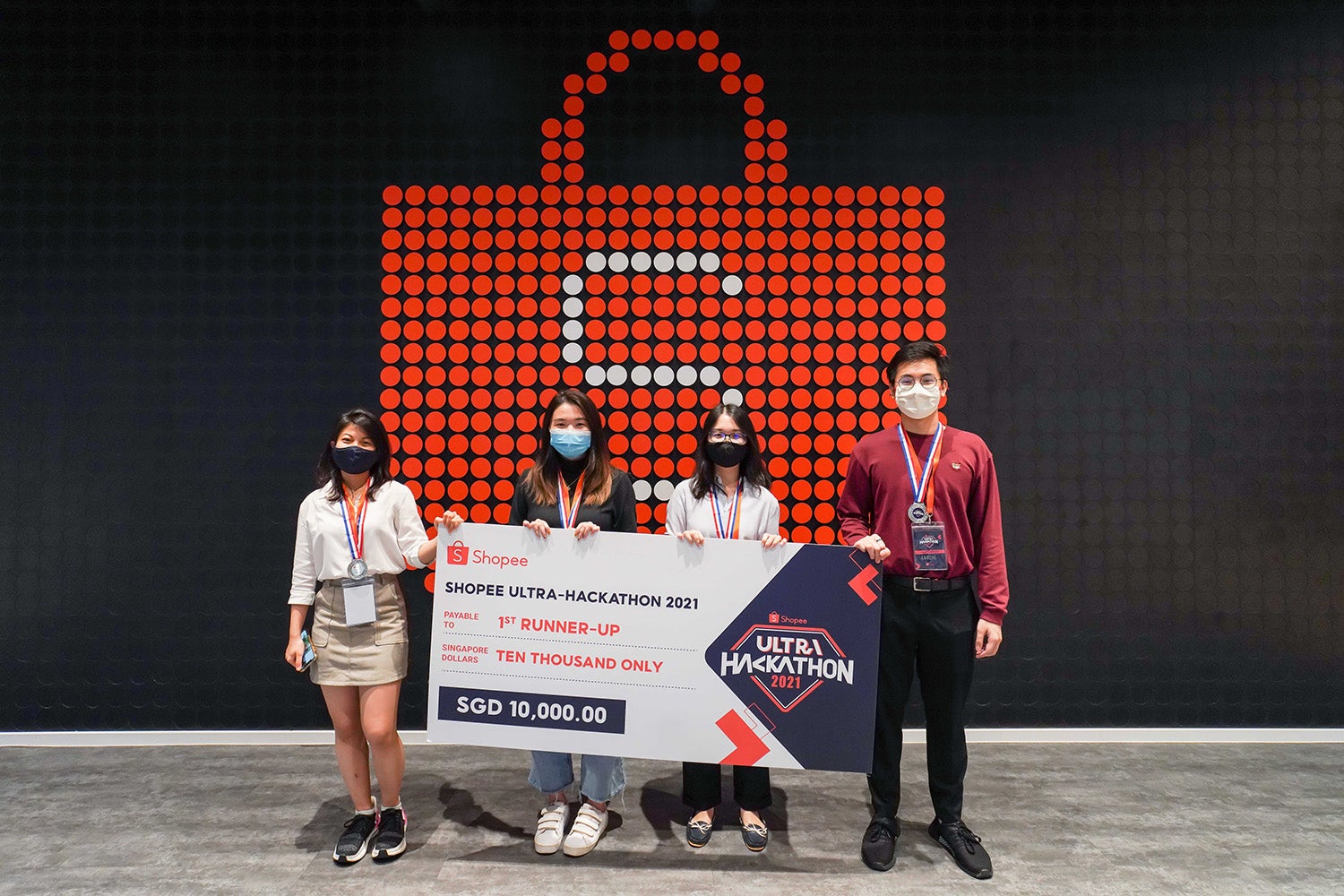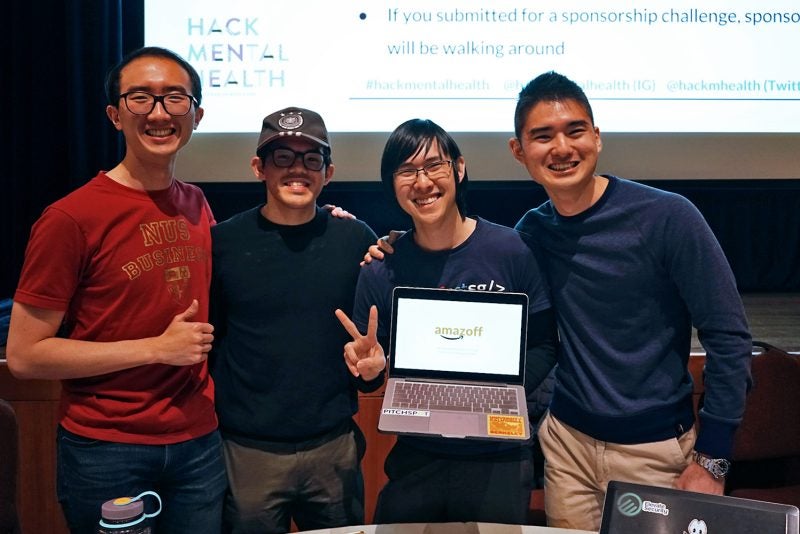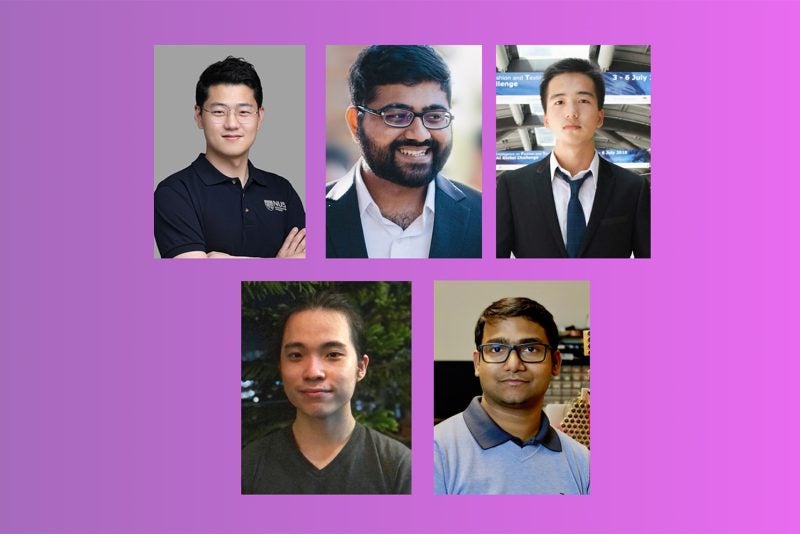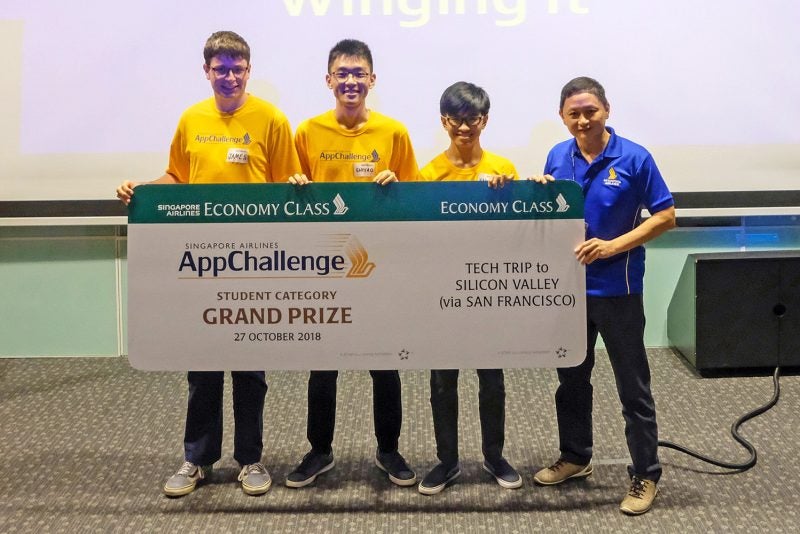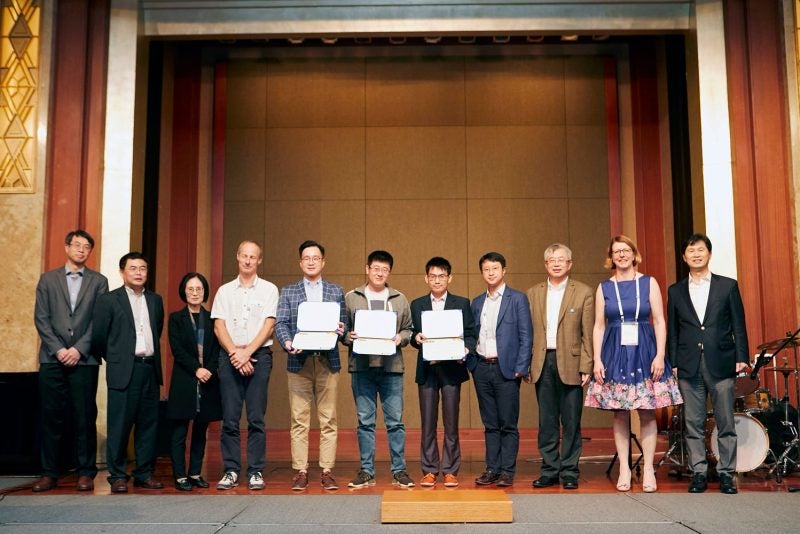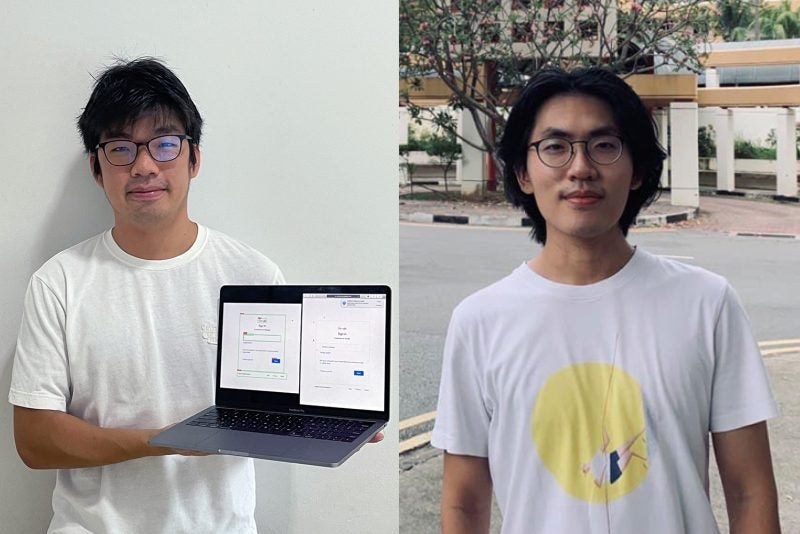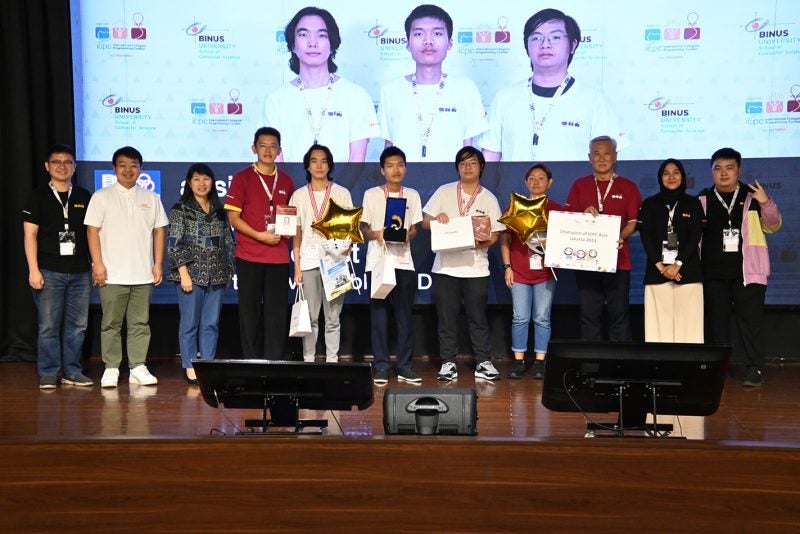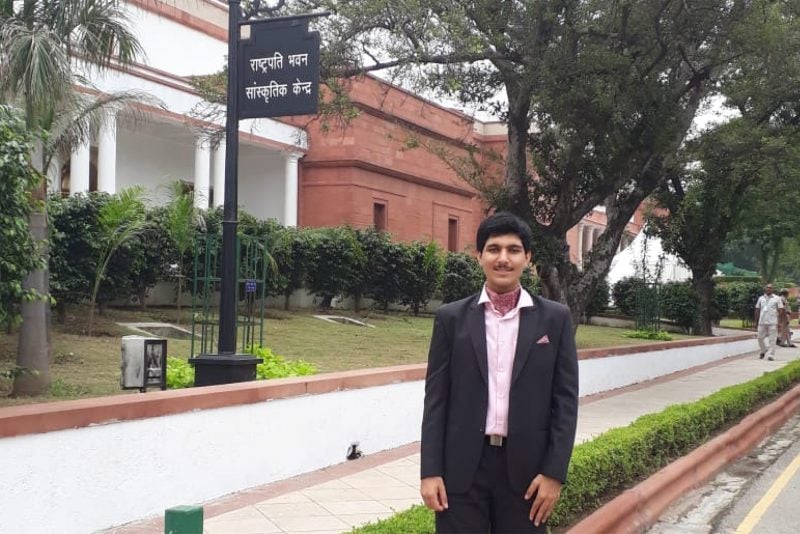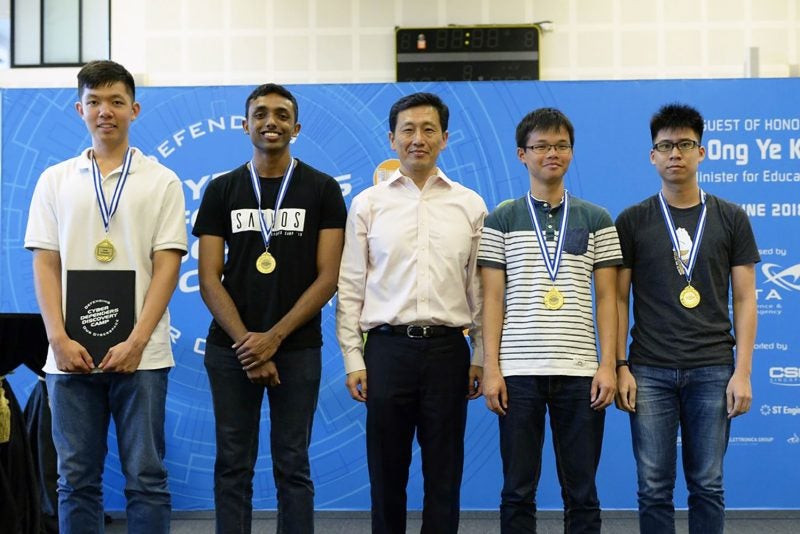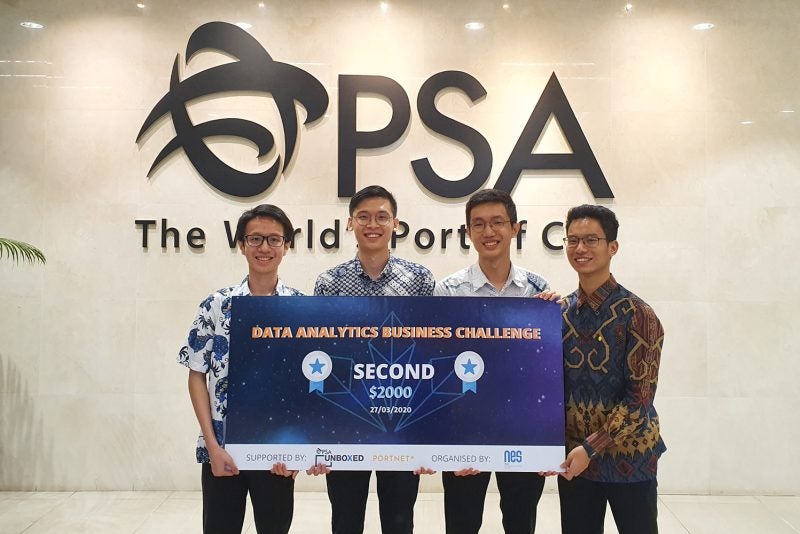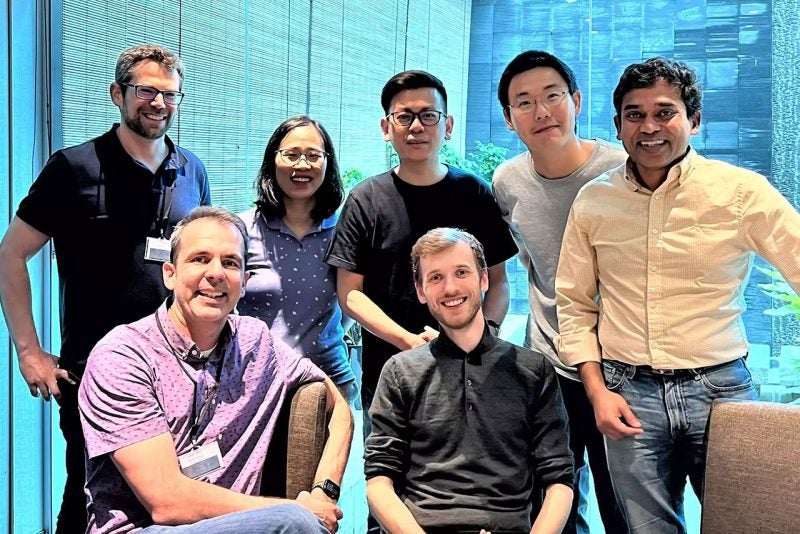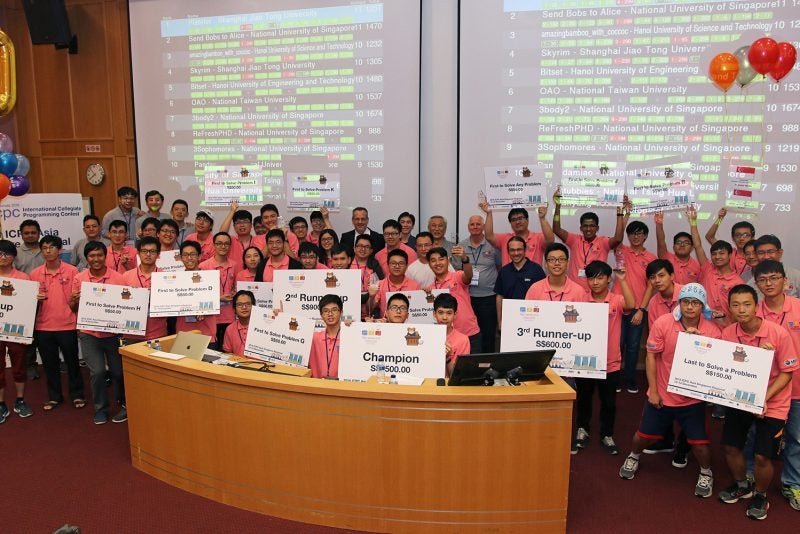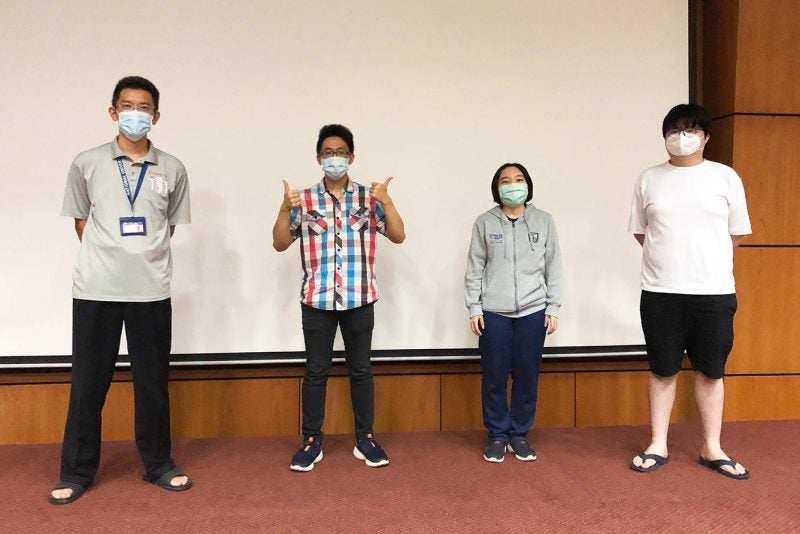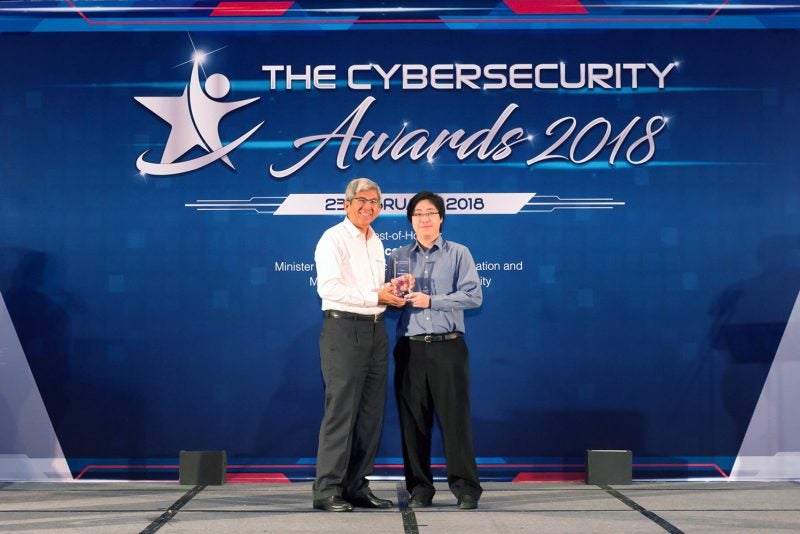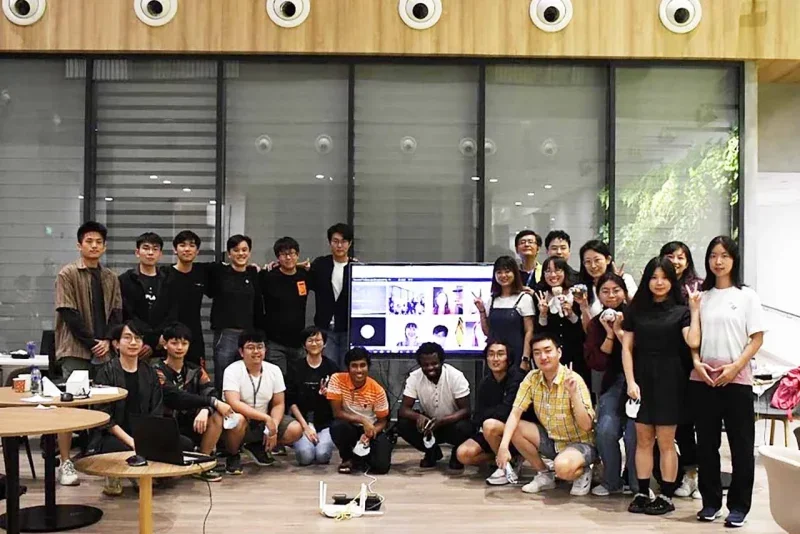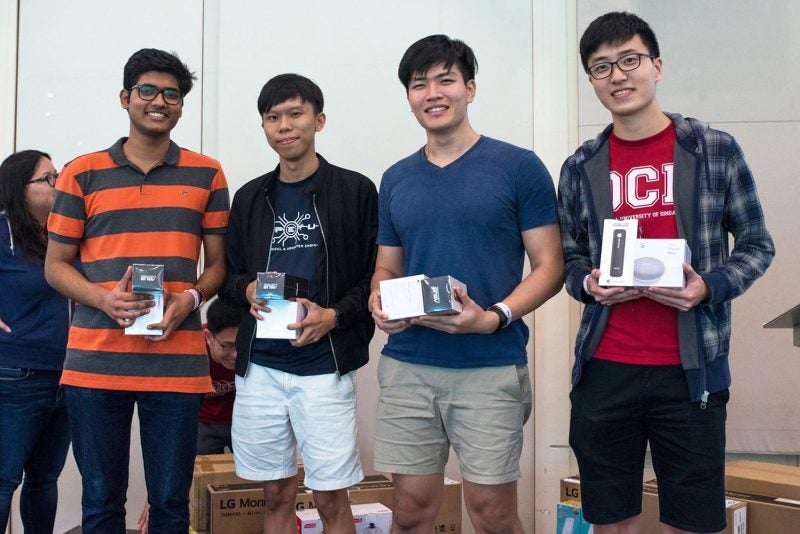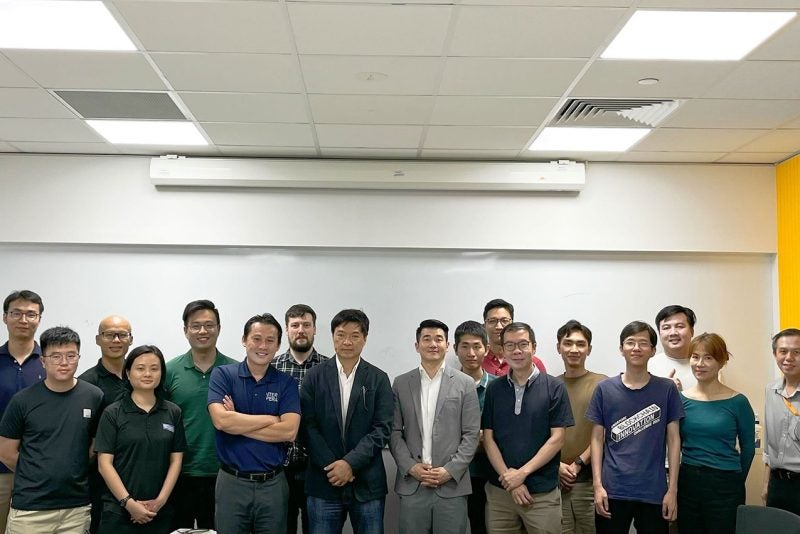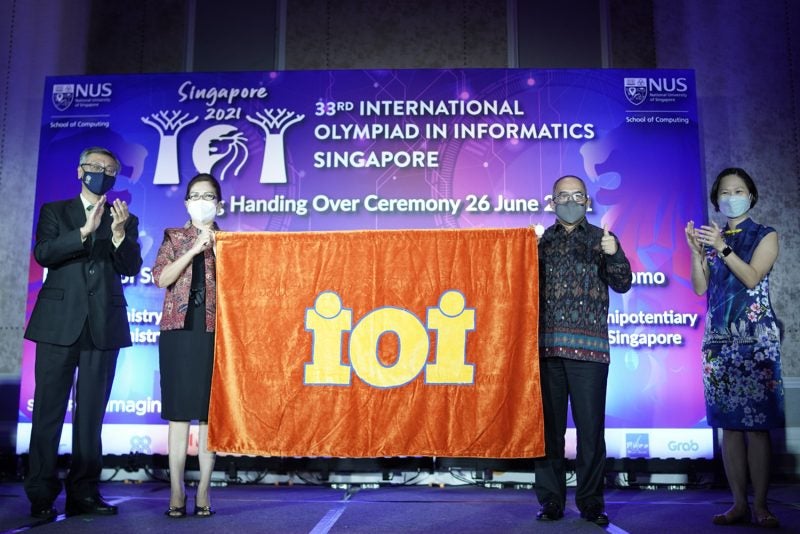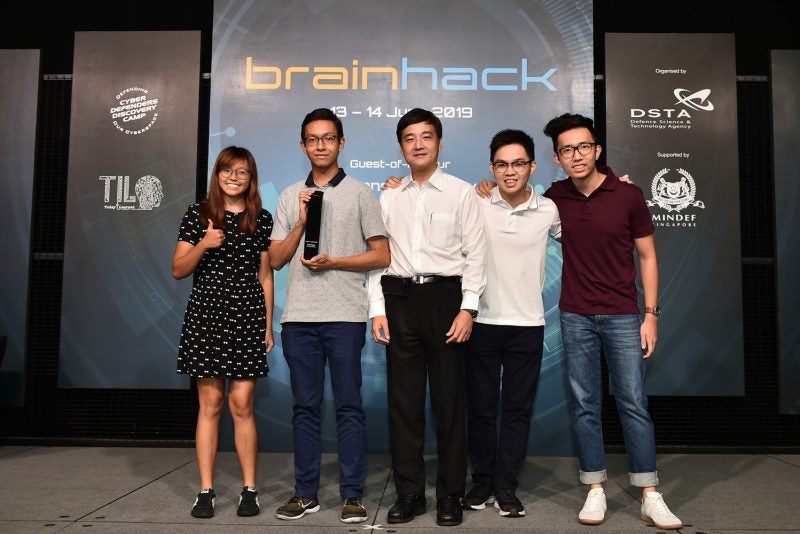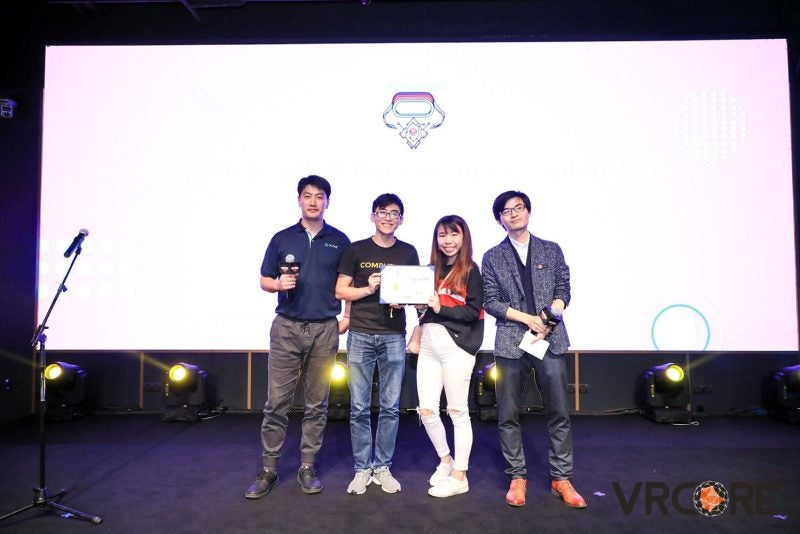26 August 2021 – Final-year NUS Computing students took home the top prizes at two hackathons organised by Amazon Web Services (AWS) and e-commerce platform Shopee.
Business Analytics student Goh Jia Yi, Information Systems student Aaron Goh Jun Yuan, along with Computer Science students Qiu Jing Ying and Ashleigh Aathar Si Yan won first runner-up at the Shopee Ultra Hackathon.
They also (with new team mate, Business Analytics student Chang Wei Sheng) emerged champions at the Build On, ASEAN 2021 Singapore hackathon organised by AWS.

Both hackathons involved creating innovative solutions that will positively impact those who use each organisation’s services. The NUS Computing team’s winning solutions for the AWS and Shopee hackathons, which won them voucher and cash prizes of US$500 and S$10,000 respectively, are outlined below.
Helping a vulnerable group seek medical care in the age of COVID-19
Held across five countries — Singapore, Indonesia, Thailand, Philippines, and Malaysia — from the Association of Southeast Asian Nations (ASEAN), the Build On, ASEAN 2021 hackathon challenged participants to create solutions that address challenges faced by various AWS partners.
The two-week long Singapore hackathon featured the companies Carousell, Cognizant, NUHS, TechForShe, and Versent, with each company issuing two challenge statements that participants had to create solutions for.
Competing under the ‘Institute’ category, the NUS Computing team chose to address TechForShe’s challenge statement, titled ‘In the midst of the COVID-19 pandemic, how can we allow for a more efficient healthcare system via the use of cloud-based services?’
After conducting market research to identify existing loopholes within the healthcare system, the team realised that the COVID-19 pandemic had caused delays in prenatal care worldwide, as pregnant women are unable to go for timely checkups.
“This is a major concern as it can lead to a higher probability of complications during pregnancies with inadequate prenatal care,” said the team, “although there are many telehealth solutions readily available in the market, none of these solutions catered to the needs of pregnant women.”
To tackle the problem, they built TeleNatal, a telehealth application that connects expectant mothers with medical professionals.
With features such as video conferencing and appointment and records checking, expectant mothers are able to shift their appointments online and consult doctors for medical advice almost instantly.
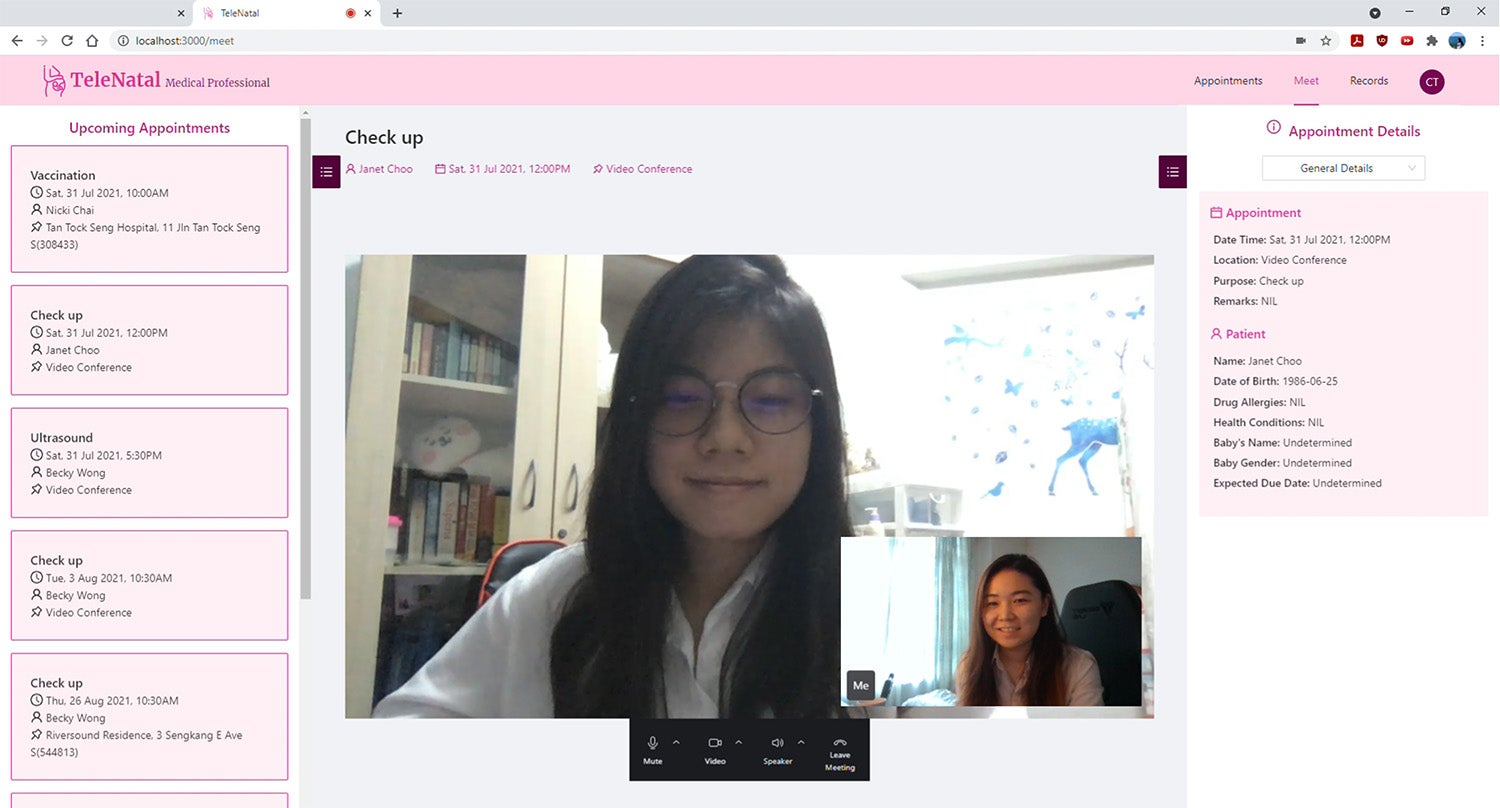
TeleNatal also helps minimise the possibility of pregnancy complications, by reducing the wait time for patients to receive medical procedures such as fetal ultrasound scans, which is driven by machine learning in the application.
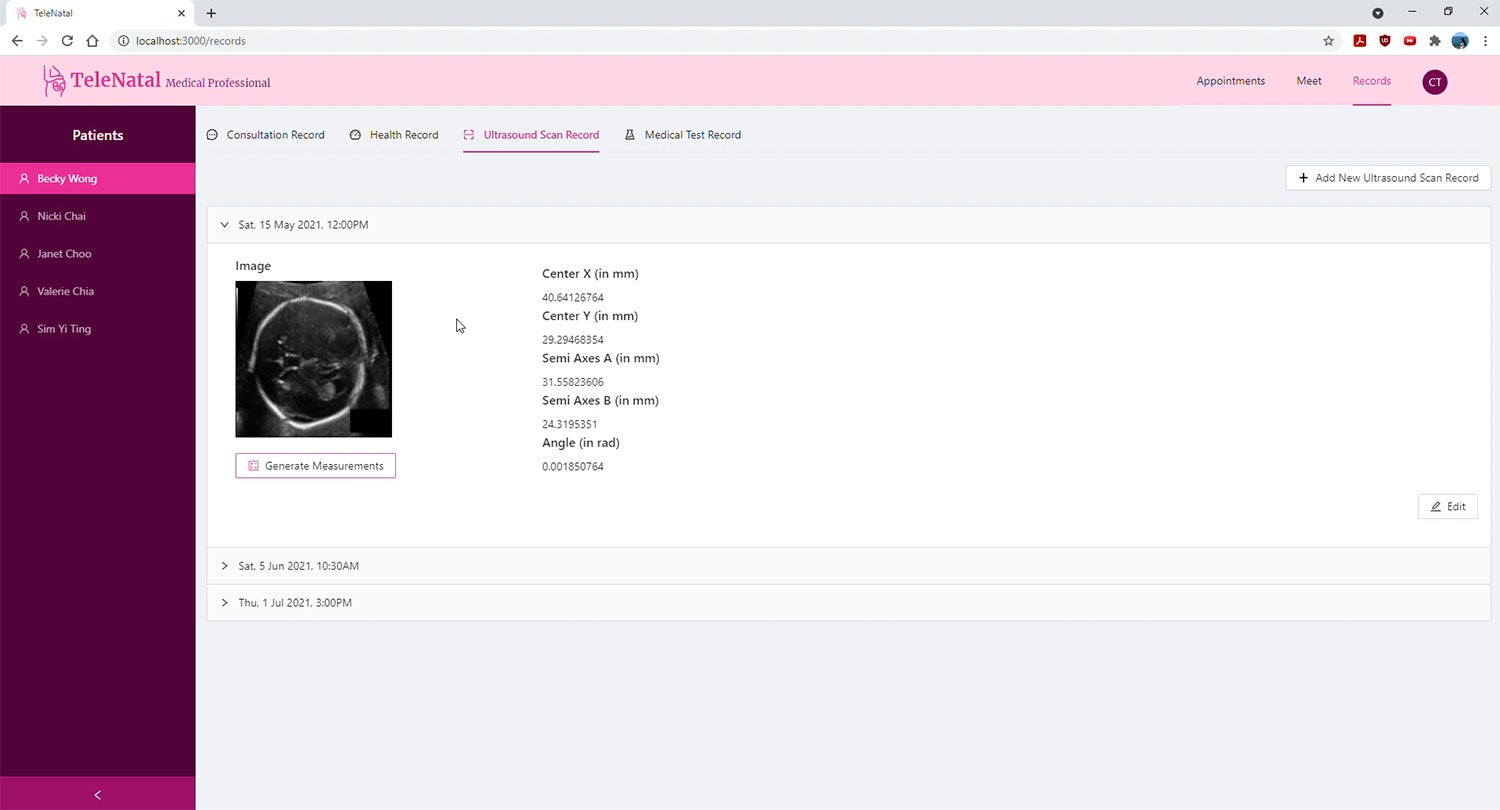
“By moving prenatal care online, TeleNatal helps prevent the spread of COVID-19 to pregnant women, while allowing them to seek timely medical care. This also benefits society as with lesser infections, we avoid straining the resources of the healthcare system,” said the team.
Developing a fun, innovative way to increase customer engagement
Spanning over a short time period of 36 hours, teams competing in the Shopee Ultra Hackathon had to develop features to increase user engagement with the Shopee application.
After brainstorming on potential areas that could help improve Shopee’s user experience, the team settled on one that solved the user problem of having unused vouchers and expired rewards.
“As Shopee users, we know that while Shopee gives out vouchers generously, users tend not to use all the vouchers that they receive,” said the team, “while rewards like Shopee Coins expire after a certain time period.”
In response, the team came up with Shopee Loots, an add-on to the existing Shopee reward system that features loot boxes, which contain potential rewards (the ‘loot’) in the form of shopping vouchers. In order to retrieve the loot, users need to obtain keys that can unlock the boxes.
Users can purchase loot boxes and keys using their Shopee Coins, or alternatively, obtain them through seasonal events or random rewards when users make transactions on the Shopee platform.
Loot boxes are divided into three tiers—gold, silver, and bronze—with gold loot boxes carrying the highest tier gold vouchers with the best value, and so on.
“Vouchers are given at random from the loot boxes, but users are able to ‘re-loot’, or trade in three of their existing vouchers for a random new voucher,” said the team.
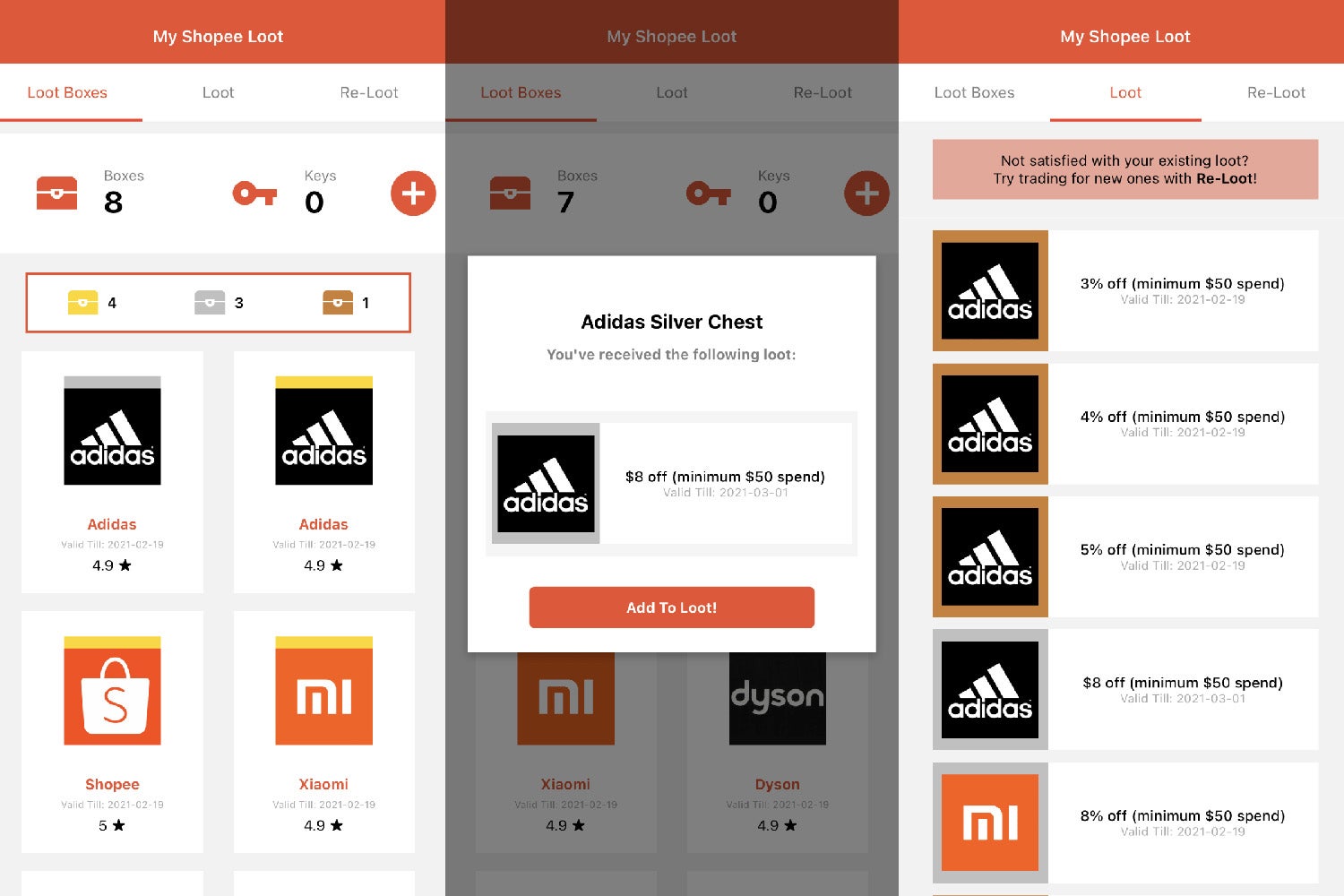
“This re-looting feature gives users more chances to obtain vouchers that they would use, while eliminating voucher ‘clutter’ and wastage by trading in vouchers they do not need. The loot box system also adds an element of fun, and keeps users engaged throughout the whole process,” they added.

